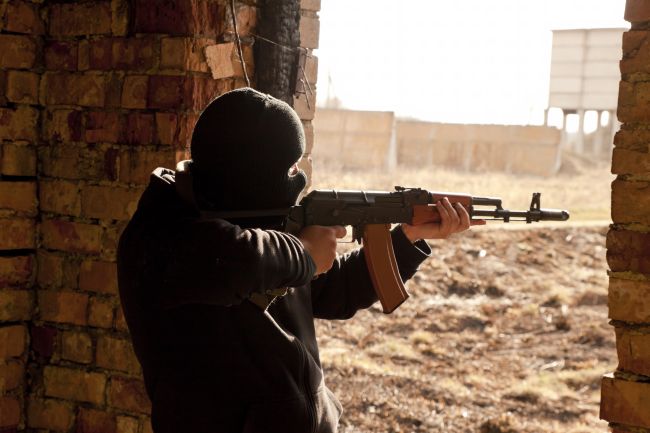
In the wake of the Paris attacks, journalists have looked closely at America’s gun laws, and found them lacking, to say the least. The New York Daily News has reported that more than 2,000 terror suspects have been able to legally purchase guns, and Al Qaeda has been urging their followers to exploit U.S. gun law loopholes since at least 2011. But why do these loopholes exist? And how is it possible for terror suspects to buy guns in America?
There are two fundamental issues at work here: Legal loopholes and an incomplete background check system. The most common issue with the former, and what an Al Qaeda spokesman discusses above in 2011, is what’s called the “gun show loophole;” a private citizen selling a gun to another private citizen isn’t required to conduct a background check, merely to not sell to anyone they have a reasonable suspicion is not legally allowed to own a firearm or to a resident of another state. Some states require that all private sales be reported, or that background checks be conducted, but in practice, that law is essentially unenforceable until a crime is committed with that weapon.
Gun stores and other Federal Firearms License holders have a stricter system in place, at least in theory. They have to record all sales and must conduct a background check on anyone buying a gun. In practice, however, the tracking system is crippled. For example, the ATF is forbidden from tracing any firearm that is not used in a crime, and federal law prohibits anyone other than a police officer or prosecutor actively pursuing an investigation from accessing the database. The ATF is, in fact, legally prevented from keeping any sort of database of firearms; to trace a gun used in a crime is a laborious process at best.
The background check system often fails, as well. For example, Seung-Hui Cho, who committed the Virginia Tech attack in 2007, should not have been able to purchase guns from a store. He had been medically diagnosed as being a danger to himself and someone in need of mental health care. But because the federal government relies on states to report these issues for the check, Cho slipped through the system. Dylann Roof, who committed the Charleston attack earlier this year, similarly should have failed a background check, but a clerical error on the part of the FBI delayed the purchase beyond three days… and once a background check takes longer than three days, a gun can be legally sold by a dealer.
There’s no one way to fix this system: Consistent state and federal policy would assist, but some terrorists could pass any background check. Similarly, it’s not clear that a law banning private sales would hold up as Constitutional. One thing, however, is certain: Law enforcement and gun sellers need better, more responsive and faster tools… and be able to stop a bad sale before it happens.
Bold. pic.twitter.com/TCsFmfpQUt
— Jim Roberts (@nycjim) November 18, 2015
